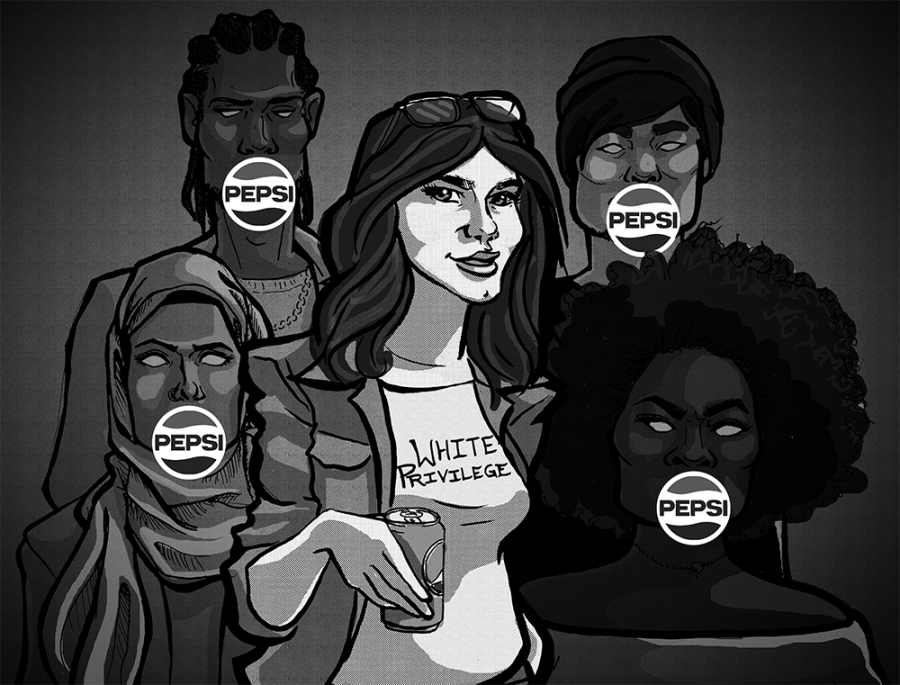Pepsi and Jenner: Corporations are now using social justice to make a quick buck
Vaibhav Vijaykar
At the center of Pepsi’s latest commercial, Kendall Jenner, model and television personality, is seen handing a can of Pepsi to an officer, allowing her to successfully defuse all tension amid a protest.
The continued use of politicized issues by companies today reveals a deeper underlying problem and raises a crucial question: Is the implementation of hot button justice issues in advertisements, as a way to engage the public, an ethical way to sell a product? Is the implementation of hot button justice issues in advertisements, as a way to engage the public, an ethical way to sell a product?
“Is the implementation of hot button justice issues in advertisements, as a way to engage the public, an ethical way to sell a product?”
Now, there isn’t an easy way to assess an issue, like police brutality, that is so systematically rooted within our societal norms, especially when the producers’ message is obscured by strange, arbitrary decision making. The commercial does, however, open the door for making the discussion mainstream, as dialogue is necessary in order to move forward.

Following the subsequent outrage, Pepsi pulled the commercial and responded: “Pepsi was trying to project a global message of unity, peace and understanding. Clearly, we missed the mark and apologize.”
Pepsi is a prime example of misguided attempts resulting in disaster. On the other end of the spectrum, if the advertisement receives praise, a social issue is still being exploited for profit. Through the guise of social awareness, it is easy for companies to manipulate their consumer base to fulfill their own profit motive, effectively a willingness to do anything for profit with a hypocrisy of profiting off of social issues while being significantly responsible for the creation of many of the same problems.
Pepsi isn’t the first company to pull off this business strategy. Given the current sociopolitical landscape, companies have found innovative ways to engage the public through advertisements centered around social justice.
During the Superbowl, the motif of immigrants was used in commercials by companies like Budweiser and 84 Lumber. Budweiser commented on the fact that the nation was built upon immigrants, through their depiction of their founder’s journey to the United States.



